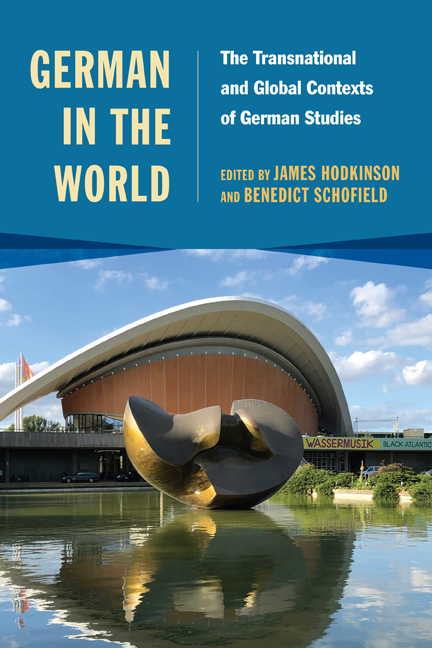13 - Reterritorializing German Pop: Kraftwerk’s Industrielle Volksmusik as a Transnational Phenomenon
Published online by Cambridge University Press: 06 October 2020
Summary
IN THIS CHAPTER I will focus on the Düsseldorf pioneers of electronic pop music Kraftwerk, using their work as a case study on the transnational influence exerted by the German pop music movement known retrospectively as Krautrock. The term is problematic, but less so because of the offensive potential often attributed to it by British scholars; David Stubbs has noted that the word “retains the condescension of the British music press, who found the very fact that these groups were German inherently amusing.” Germans, however, have readily accepted it as a generic title, though only retrospectively; when the Krautrock bands were active, there was little self-perception on part of the musicians that they were part of a movement, as there were different centers and scenes across Germany (most important in West Berlin, Munich, and Düsseldorf/Cologne). For example, Michael Rother of Neu! (New!) has stated: “Any box or label that is attached to our music tries to neglect the fact that we weren't a ‘family’ of German musicians, we had no common goals or identity.”
In describing German experimental music from about 1968 to the mid-1970s, but also beyond, so-called Krautrock constituted a hugely heterogeneous body of musical approaches and styles. Ulrich Adelt rightly hesitates in representing Krautrock as a unified genre or countercultural movement, rather arguing that it constitutes “a field of cultural production,” and defining the term as “an all-encompassing name for the music of various German performers from roughly 1968 to 1974.”4 What is undisputed, however, is that the music retrospectively called Krautrock proved to have a massive impact beyond Germany on the development of music styles. In the field of Krautrock, Kraftwerk stands out not least because artistically it is arguably the most successful and influential German group and because the group continues to perform live to great acclaim. As such, their work offers a rich case study for exploring the impact of German pop music in the United Kingdom and the United States.
Kraftwerk, founded in 1970, became internationally famous with its 1974 release of the epochal track Autobahn (Motorway), which became a top-ten hit in the United States. The group's main body of work appeared between 1974 and 1981, and thus belongs more to the aftermath of Krautrock.
- Type
- Chapter
- Information
- German in the WorldThe Transnational and Global Contexts of German Studies, pp. 254 - 276Publisher: Boydell & BrewerPrint publication year: 2020

